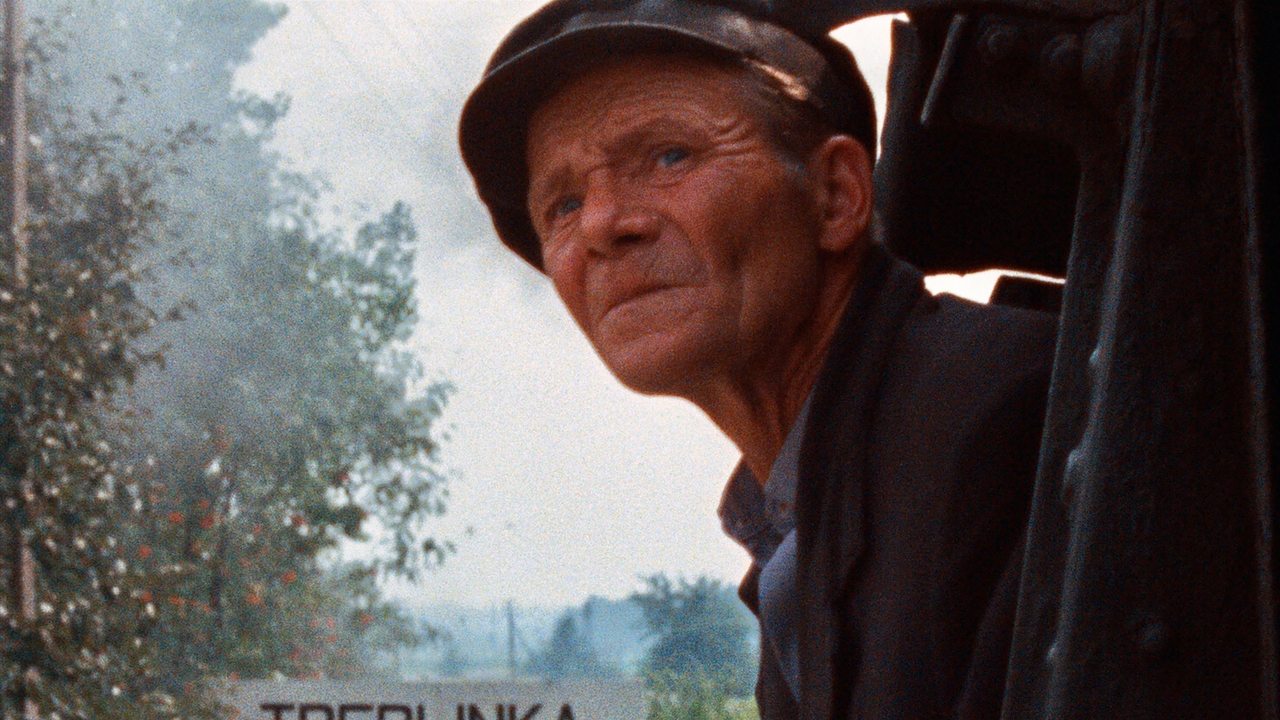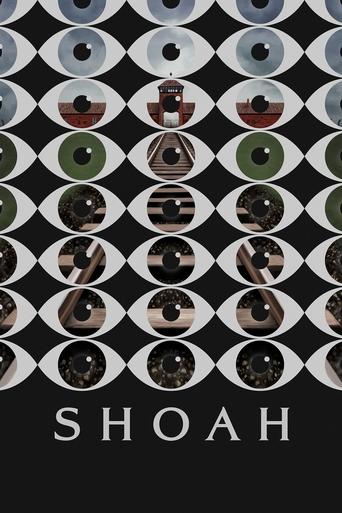Matrixston
Wow! Such a good movie.
Laikals
The greatest movie ever made..!
ChanFamous
I wanted to like it more than I actually did... But much of the humor totally escaped me and I walked out only mildly impressed.
Sammy-Jo Cervantes
There are moments that feel comical, some horrific, and some downright inspiring but the tonal shifts hardly matter as the end results come to a film that's perfect for this time.
rcolgan
Shoah was not just an important film to make. It was a necessary one. It was directors Claude Lanzmann's intention to document all of the survivors experiences on film. With so many horrors in history being forgotten over the years he wanted to ensure that the holocaust would never be forgotten. Therefore he chose to film these testaments to ensure that all future generations would know of the horrors that transpired during World War 2 needlessly to an entire race of people. Lanzmann made the decision not to recreate any of the horrors of the war through reenactments and not to use any existing pictures or articles relating to the holocaust. Instead he used only the testimonies of people who either lived through the holocaust, witnessed it and even some of the orchestrators. Neither was he interested in stating how or why it had begun either. There are already enough documents and documentaries about how that came about. He wanted to show how these people saw the horrors that transpired and show the many ruined lives resulting from it. Through this then in many ways he created a far more brutal picture of the holocaust. Many of their descriptions create ones of true horror, with one Polish man who visited the ghetto stating that it was "a place without humanity". His words alone create such a dreadful yet truthful image of the horrors that people had to go through under the holocaust, far worse than a recreation could have done.But even more horrifying than this are the expressions of these people as they relive the horrors in their mind. Their expressions of pure despair tell a story that could not be told in any other way. Lanzmann used many long stretching takes as people relieve their stories with no dubbing and only subtitles used so the full emotion of these survivors can be witnessed. The film ensures that we see from their perspective. It makes us consider how we would feel if we had lived through such an event.At times some of the interviewees will want to stop, due to be so horrified at reliving their terrible memories. But Lanzmann's style of questioning is very forceful, getting them to talk even if they don't want to. He sees great importance in ensuring that those who witnessed its horrors document their testimony. He gets them all to go in to every detail of what happened from the number of people there to whether they could get used to things like hearing the screams of people dying beside them. He wants us and all future generations to know the complete image of everything that happened to them.Instead of seeing pictures of the death camps or trains as they were, we instead see how these places are now. Sometimes it will be of the villages around the camps or even the camps themselves. But these camps have all been destroyed, with many of them being destroyed by Nazis before the end of the war. It's strange to see how such normal places such as a field of grass is a grave for so many innocent people. If it weren't for our knowledge of what had happened in a place like this it would have been likely that you would never even know what had happened there.And this film tries to ensure that we never forget what happened there. Shoah confronts the issue of the holocaust and make sure these testaments are documented. Because we shouldn't look away. Villages around the death camps simply turned the other cheek and allowed the horrors to go on. So the film shows their perspectives so we know the true horror caused in those events. The only way to ensure that such a terrible history shall never repeat itself again, we must understand the horror that it was torturing the lives of so many people.
Jackson Booth-Millard
1001 Movies You Must See Before You Die is a very reliable reference book featuring some good choices, and I saw this film both for that reason, and because of the length. This documentary from director Claude Lanzmann focuses on the horrific events during the Holocaust, where over six million Jewish people were exterminated. He interviews all the people that are still alive during this time in the Second World War who witnessed parts of if not all of it, including traumatised survivors, people living near the death camps, and very controversially, ex-Nazis who only agreed to be heard but are secretly filmed. We see these people speaking the director's language of French, but there is also some German and Polish language amongst, and some translated on the spot by the director's translator, but don't worry, there is some English too. We see all the locations of death camps and train lines leading to them, e.g. Auschwitz, Chelmno, as they look in the present (sometimes covered in snow, but no matter). What makes this documentary really interesting besides the stories of the people interviewed, is the fact that not one single frame of archive footage (if any exists) is used to portray the horror of these times. At about nine and a half hours long, you may struggle to keep our eyes open throughout the entire thing, but at the same time, you want to hear about these unimaginably horrific incidents. If if it wasn't so long I may give it a slightly higher rating, but don't worry, I don't deny the critics are right to give it five stars, the director did take a decade to complete his film, so it is a must see documentary. It won the BAFTAs for the Flaherty Documentary Award and the Flaherty Documentary Award (TV). Very good!
bunnyhaid
i have only watched the first disc and i wanted to cry and pull my hair and tear my clothing and wail out loud. i am not Jewish nor am i related to any survivors or victims. i have known many people with the tattoos, as i am the same age as most of them. they are all dead now. i am not, esp. in my heart.first, i thought that it was visually beautiful. i had a visceral reaction when the director was insistent even to the point of bullying the cast. i worried that if they began to relive it all they would come undone and cry and wail for the rest of their lives, not be able to stop. on disc 1, though, the emotion ran high but no one lost control. perhaps something inside them is flat, just to survive.i thought this was an excellent portion of a film. i think the idea of getting all the survivors on tape before it is too late was a great one. i think the topic should not be avoided since there is genocide going on periodically all over the world. are the people who know the history of the holocaust then to intervene so that history will not be repeated or will we stand by? one thing i sensed strongly from the little bit i saw was the position that the townspeople or people in general who were not targets were in. i always thought they should have 'done something' but now i see 'what could they have done? they would have been murdered. along with their families, with total impunity. it would seem that the Nazis controlled everything and everyone at that time and place. even those who were not direct targets were victims in a way and have had to live with what they saw and their own helpless guilt. Carole/wannadance
holopone
Shoah is in many ways the mother of all insightful films about the Holocaust. Instead of relying on the usual images, Lanzman's film takes us to the people who suffered, survived, and to those who made the Holocaust possible. It is all too easily forgotten that ordinary people, often believing that they were doing the right thing, contributed to the greatest act of systematic murder ever recorded. This film reminds us of that. In a time when Nazis are once again big business in the main stream, it is more important than ever to introduce young audiences to the reality of the Holocaust. Shoah is probably the best introduction to the topic ever made. This is one of those rare films that documents history without burying or sensationalizing it. It is a great film because it leaves us with questions that we still have to face.

